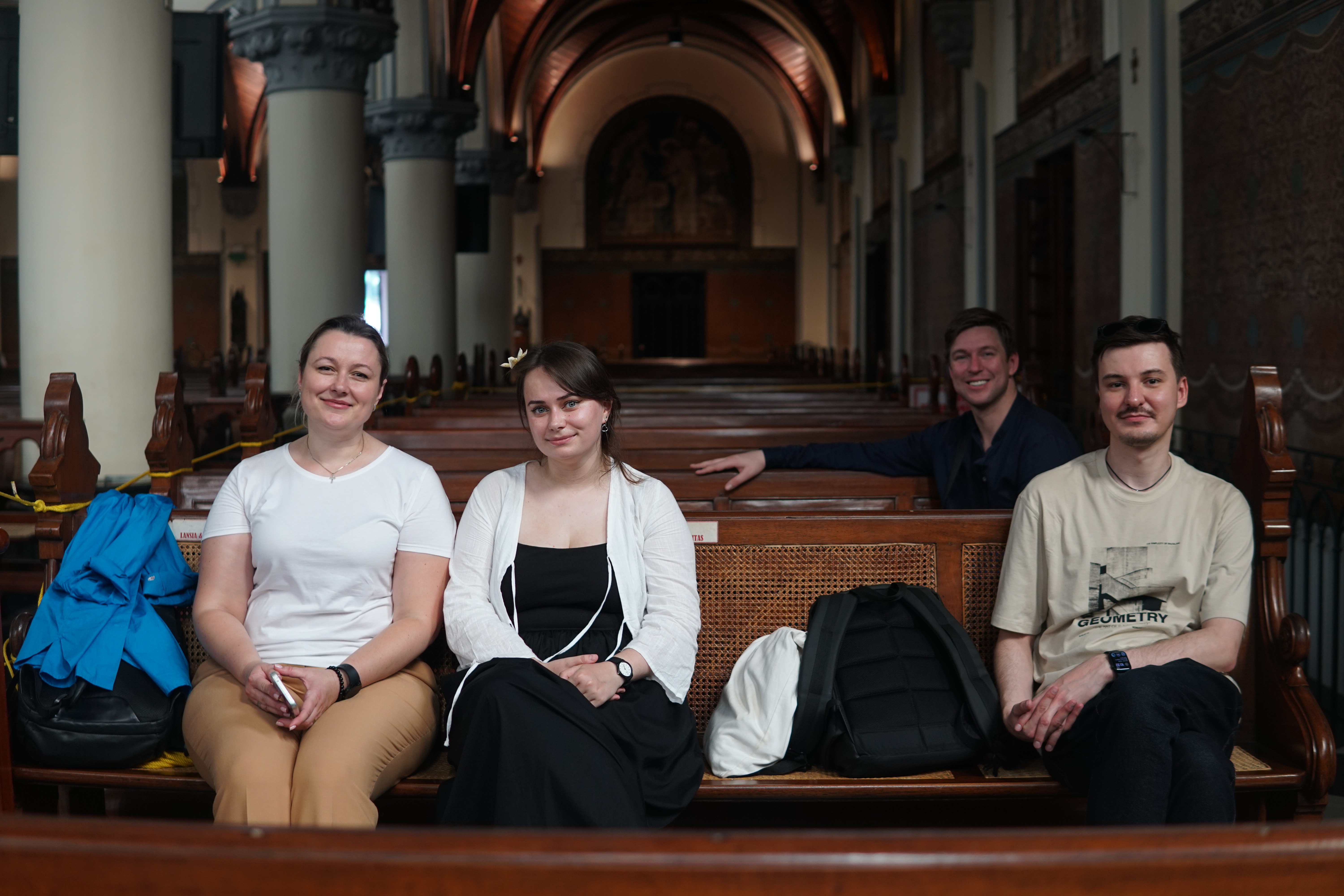

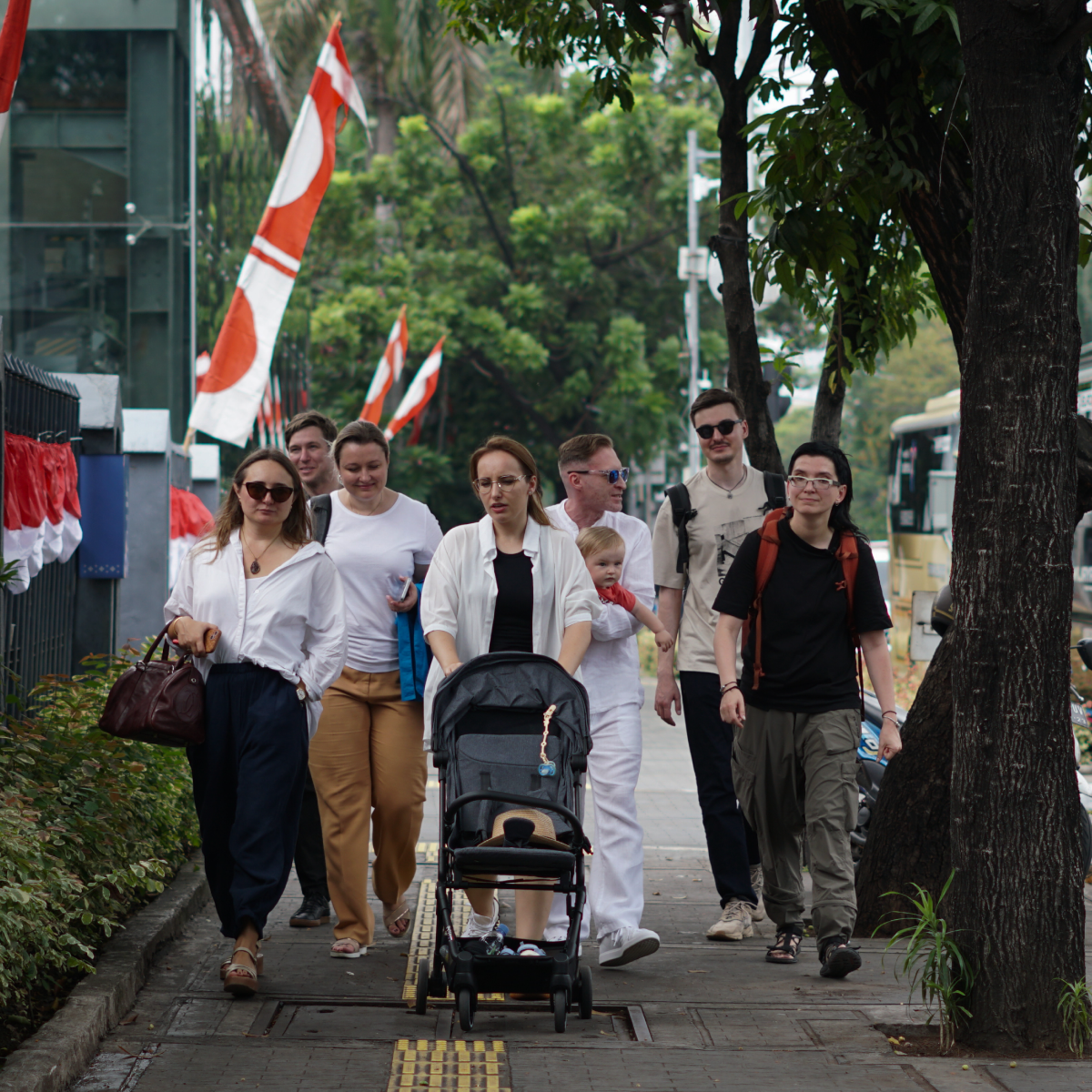
In early August, a Ukrainian delegation of journalists and experts embarked on a four-day press tour across Jakarta as part of the project "Conversation of the Free: Ukraine and Indonesia," supported by the International Renaissance Foundation. This initiative opened meaningful dialogues about diplomacy, history, human rights, and democracy. What emerged was more than just a series of meetings. It was a genuine exchange between two nations whose struggles for independence and sovereignty, though separated by geography and time, share remarkable parallels.
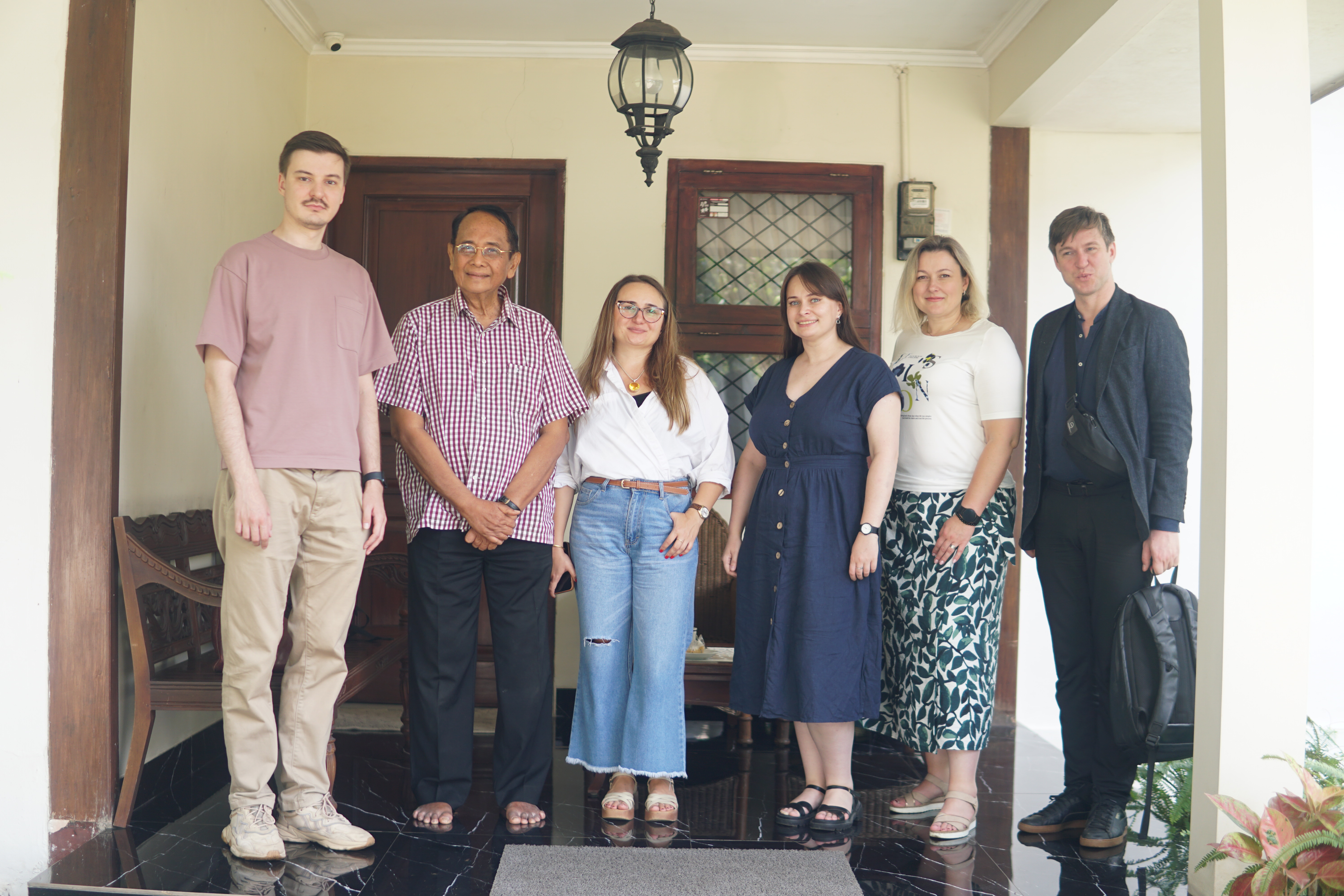
The tour launched at the Ukrainian Embassy in Jakarta, where the delegation met Suzie Sudarman, a foreign policy expert and senior lecturer at the University of Indonesia. With her deep expertise in U.S. foreign policy studies, Sudarman provided crucial context about Indonesia's evolving international role and what Ukraine might learn from Indonesia's diplomatic approach.
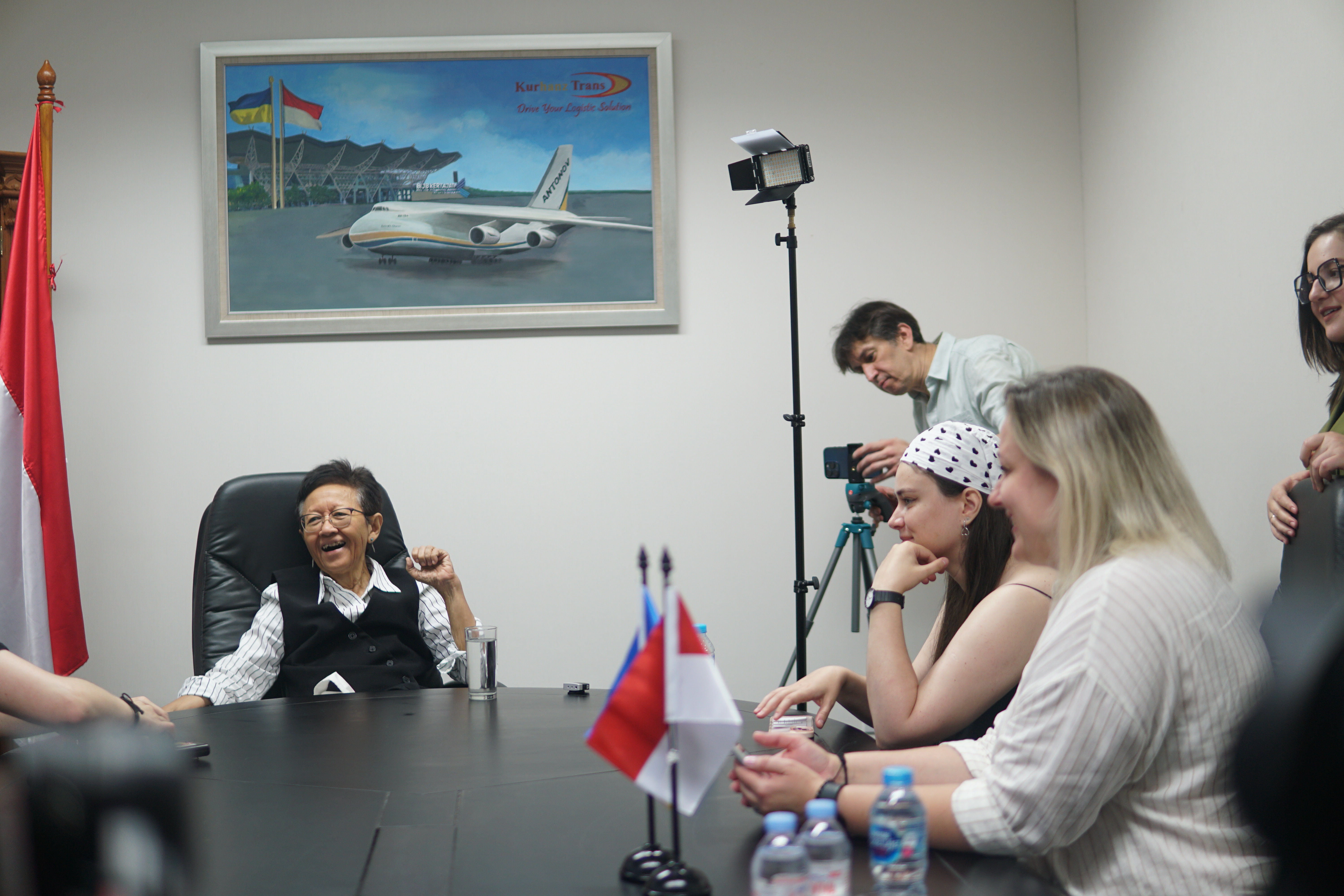
The conversation continued over lunch with embassy staff before moving to Central Jakarta to meet Dr. Andi Achdian, a historian and editor of the History Journal. Dr. Achdian's insights into Indonesia's anti-colonial struggles and the development of Indonesian nationalism struck a particular chord with the Ukrainian visitors. The parallels between Indonesia's fight against colonial rule and Ukraine's current battle for sovereignty created an immediate connection that would resonate throughout the tour.
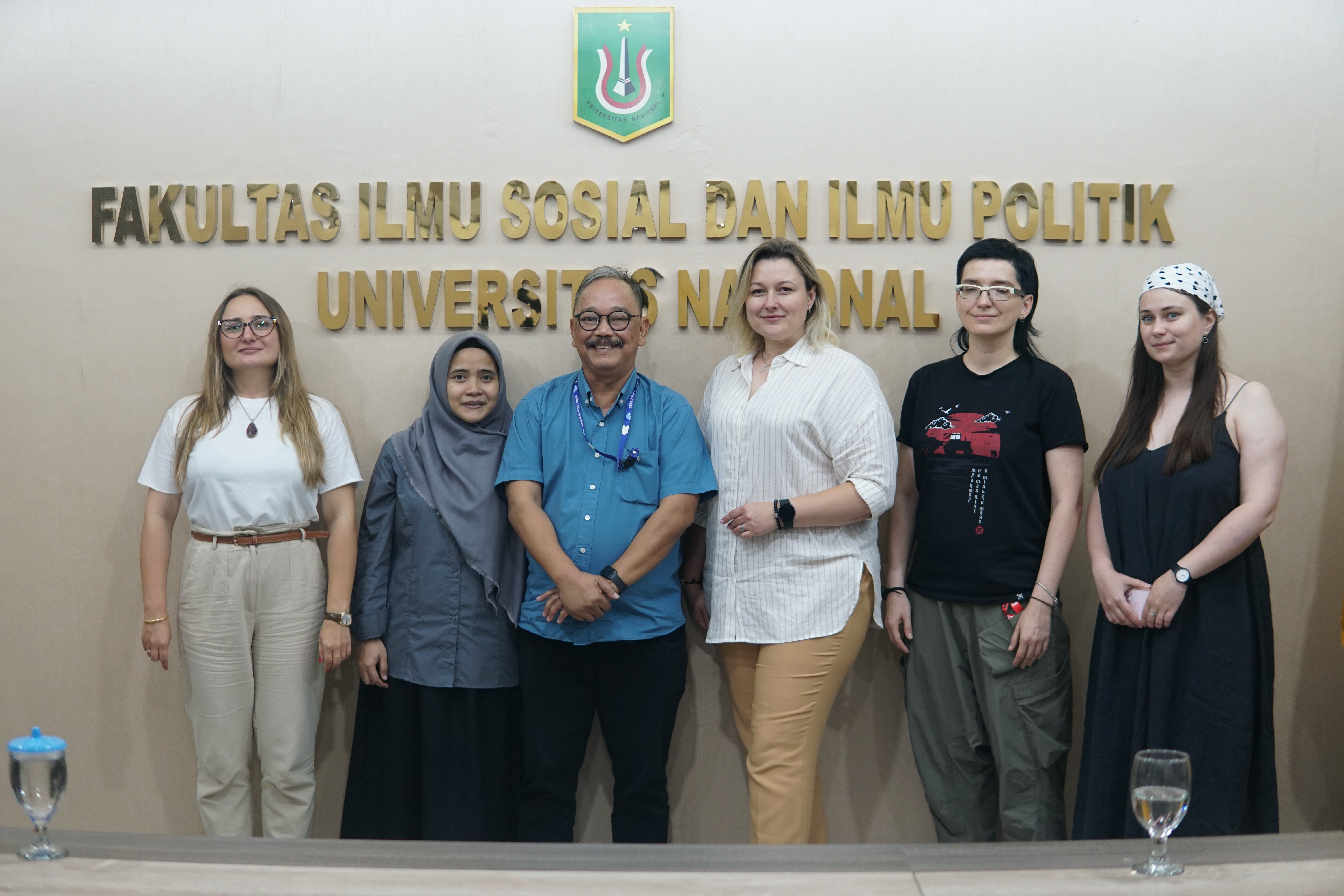
The second day brought perhaps the most sobering discussions. At the home of Makarim Wibisono, former UN Special Rapporteur on Human Rights in Palestine, the conversation turned to difficult topics – past human rights violations in Indonesia, the UN's limitations in addressing global security crises, and the urgent need for accountability in Russia's war against Ukraine. Wibisono's diplomatic experience provided a unique perspective on how international mechanisms can both help and hinder justice.
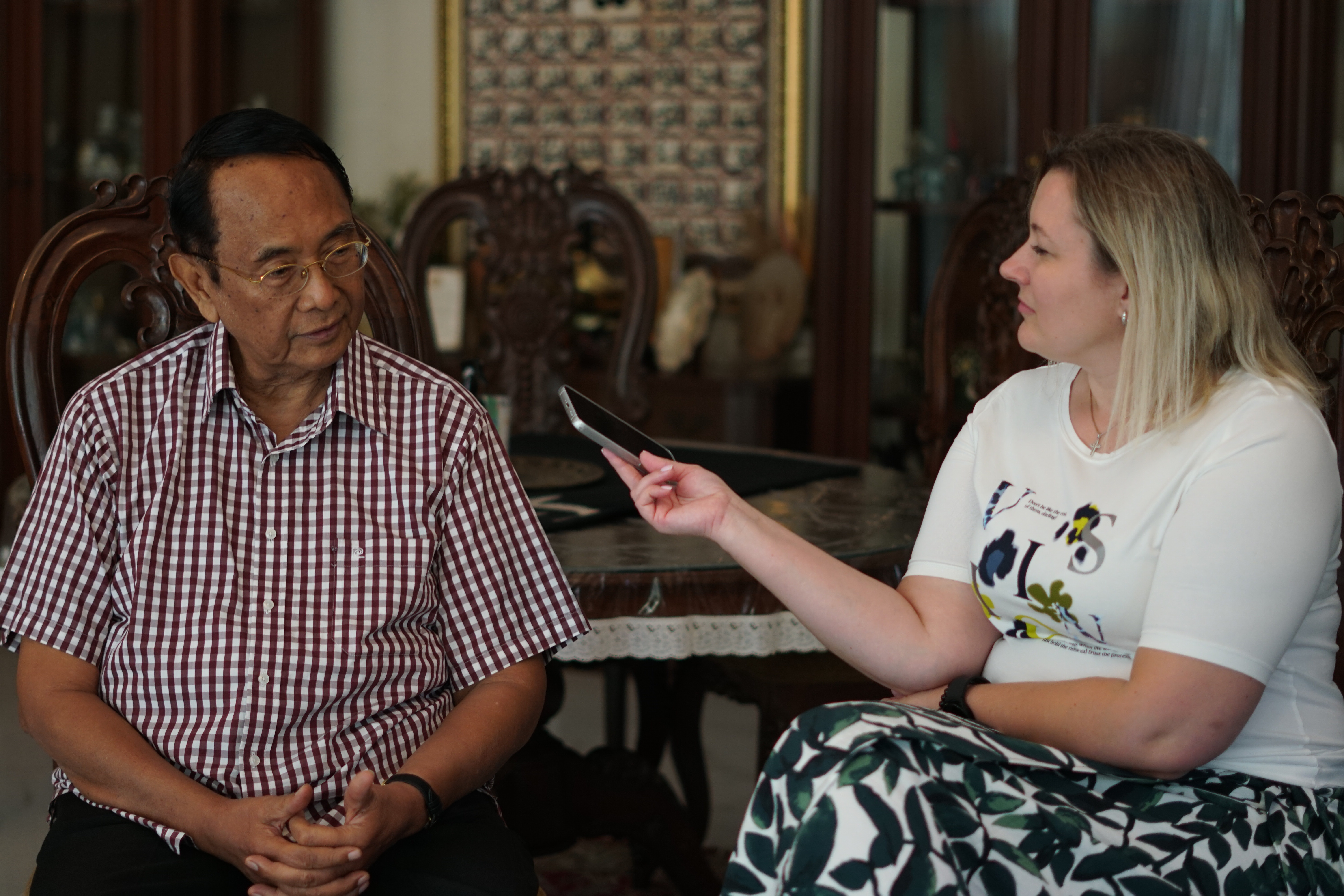
The afternoon session with Radityo Dharmaputra, a researcher specializing in Russian foreign policy, offered strategic insights into Indonesia's careful balancing act regarding Russia's aggression. Dharmaputra explained how Moscow has been working to influence narratives across the Indo-Pacific region, making Indonesia's neutral stance both understandable and complex.
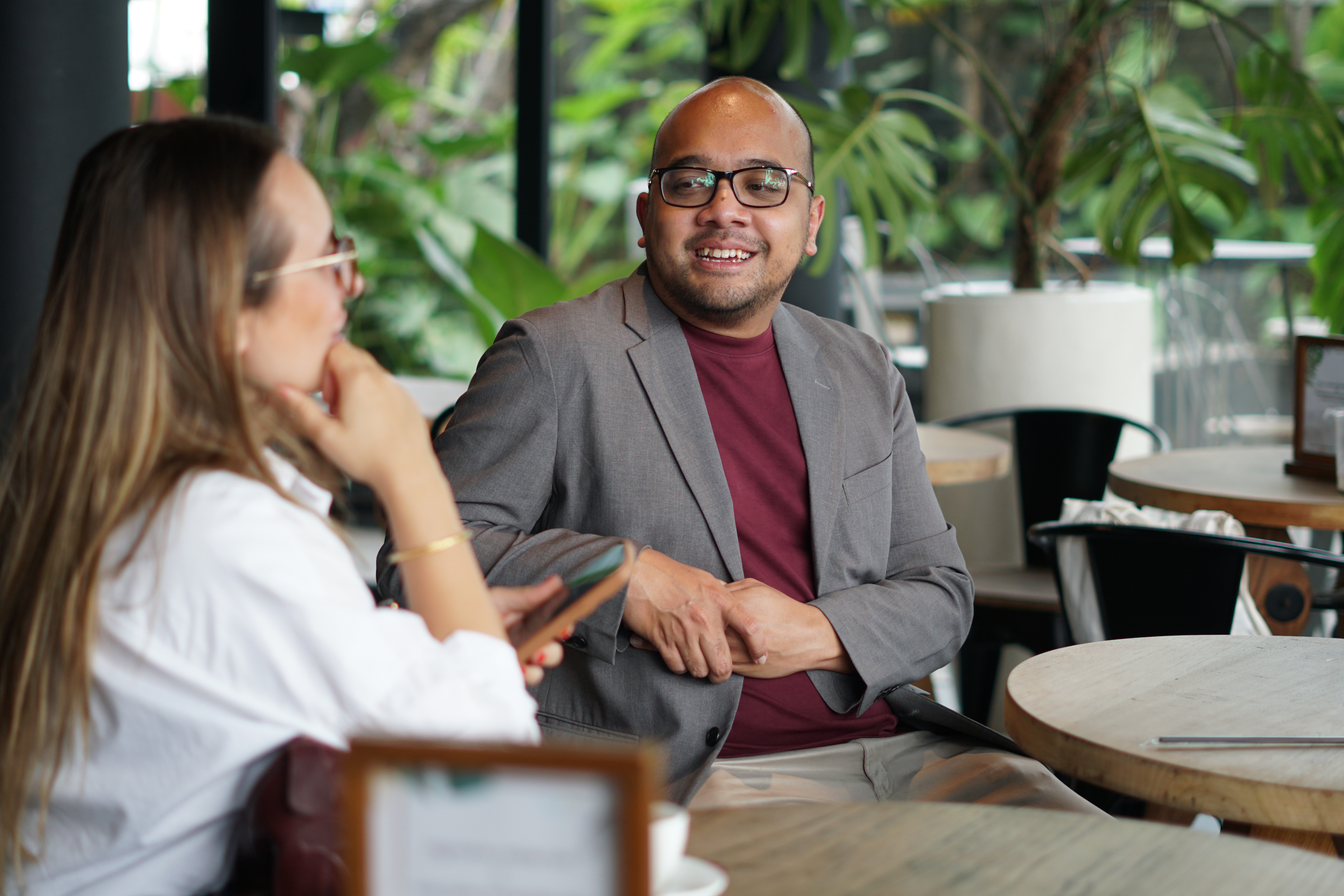
The day concluded at Metro TV headquarters with Iqbal Himawan, a senior journalist who has reported directly from Ukraine. His firsthand accounts of covering the war brought the human cost into sharp focus and highlighted how Indonesian media coverage shapes public understanding of distant conflicts.
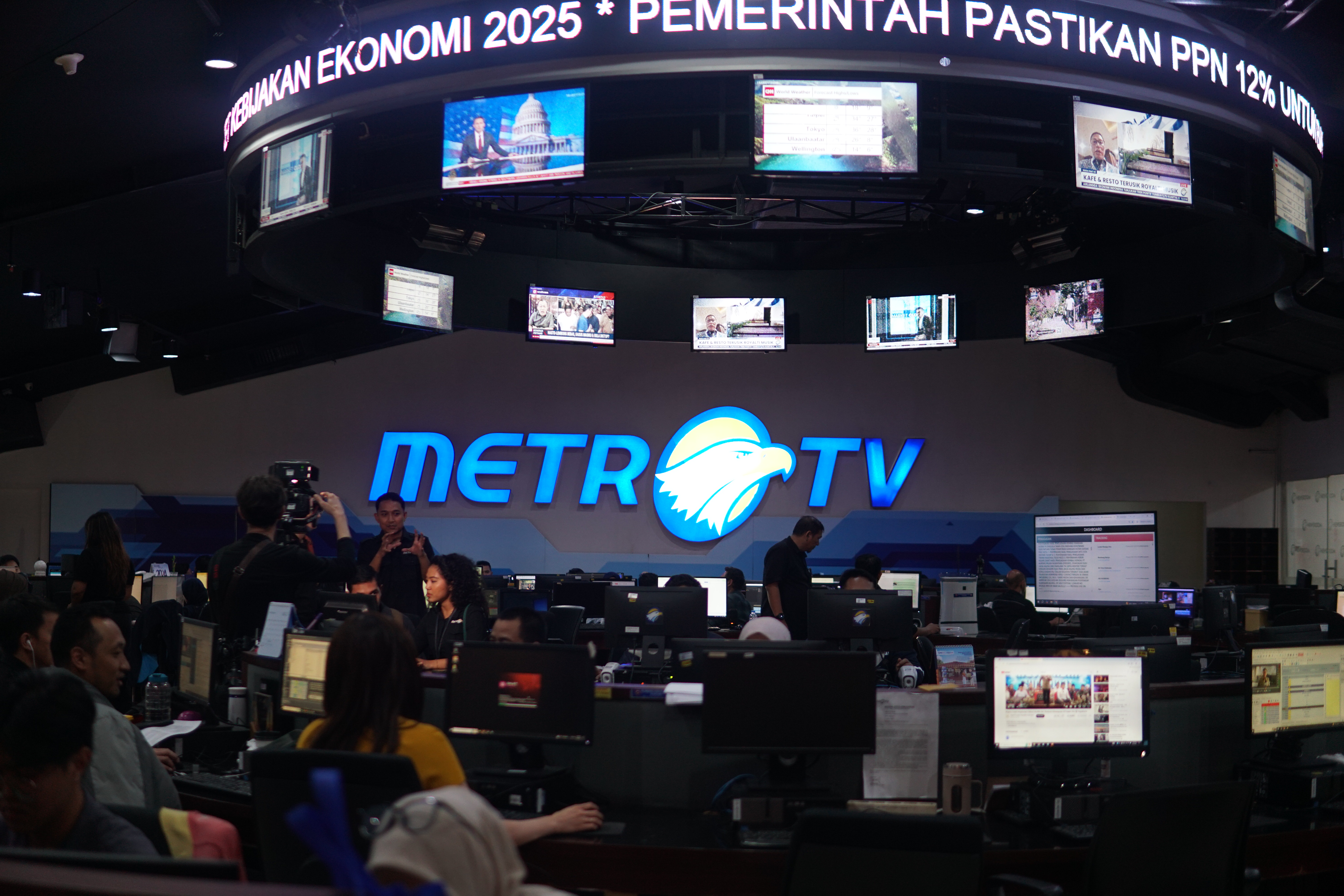
A visit to Jakarta's iconic National Monument provided the backdrop for meeting Anton Galushka-Adaykin, a Ukrainian historian who has made Indonesia his home. Together with his wife, musician, Natalia Kuchma, they shared their experience of living in Indonesia and presented a cultural perspective on shared struggles.
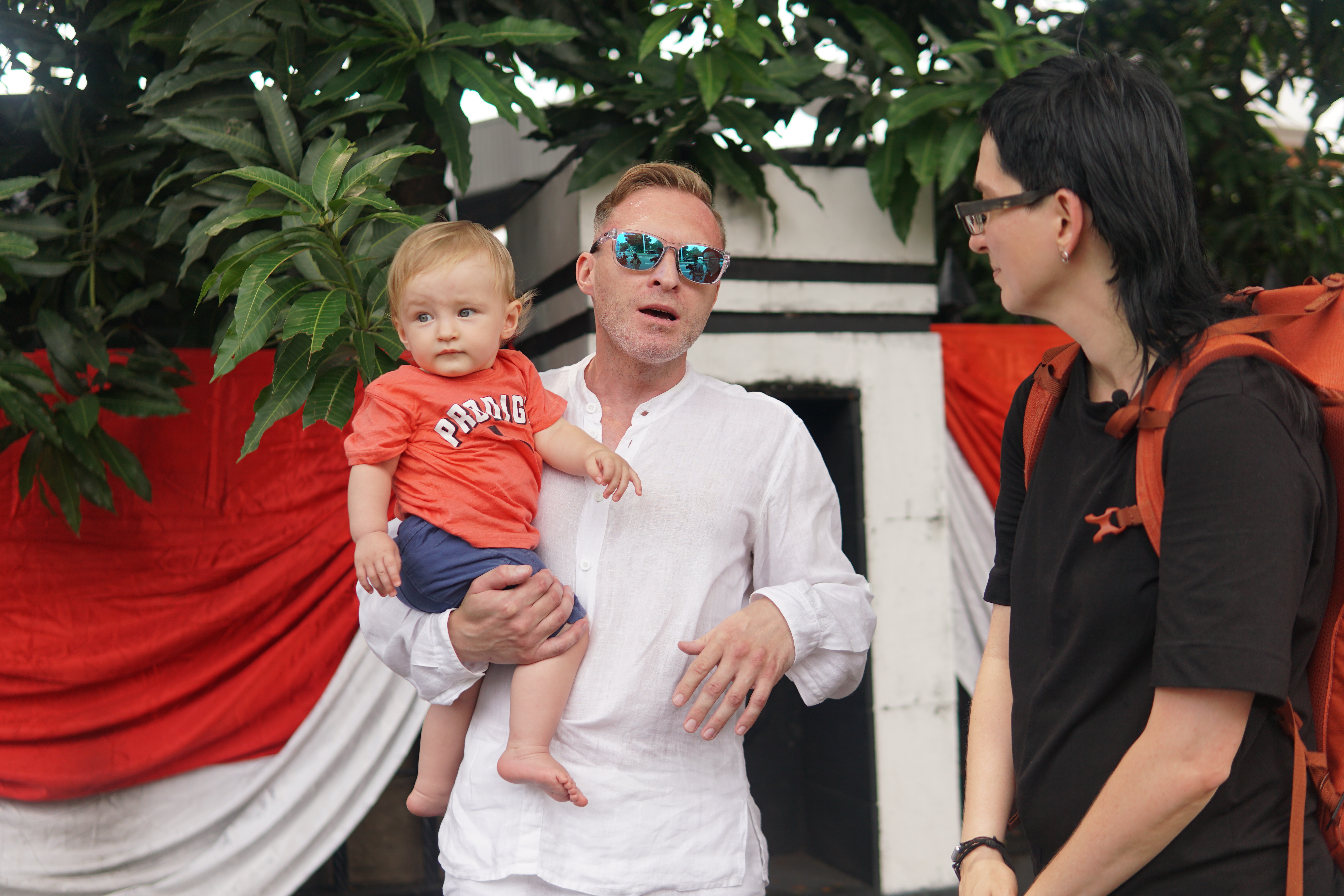
The day's highlight came at LAB 45, a respected think tank, where senior experts Makmur Keliat, Reyhan Noor, Christian Guntur Lebang, and Reine Prihandoko led detailed discussions about Indonesia's defense modernization efforts, fiscal policies, and foreign policy strategies. These technical conversations revealed concrete areas where Ukraine and Indonesia could learn from each other's approaches to building national resilience.
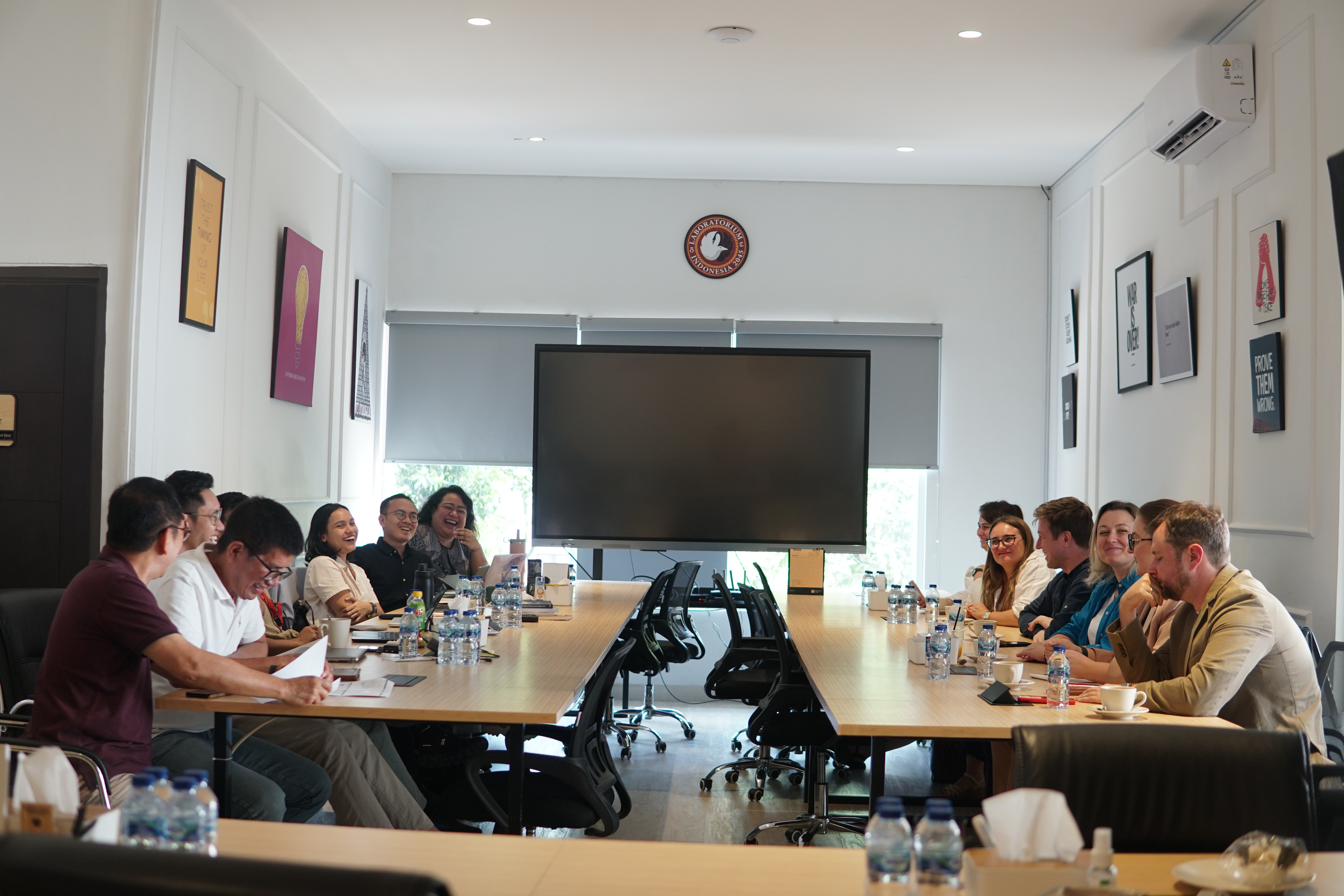
The final day opened with Tamalia Alisjahbana, whose credentials as lawyer, journalist, and cultural heritage expert, not to mention being the daughter of renowned poet Sutan Takdir Alisjahbana, brought a uniquely Indonesian perspective to questions of democratic development and cultural identity. Her insights into how culture shapes national identity proved especially relevant to Ukraine's ongoing struggle for self-determination.

The tour concluded with Al Araf, a military expert and civil society leader whose work on security sector reform and peace initiatives in Papua offered valuable lessons about managing internal conflicts while maintaining national security. His perspectives on Indonesia's complex security challenges provided a sobering counterpoint to theoretical discussions about defense and diplomacy.
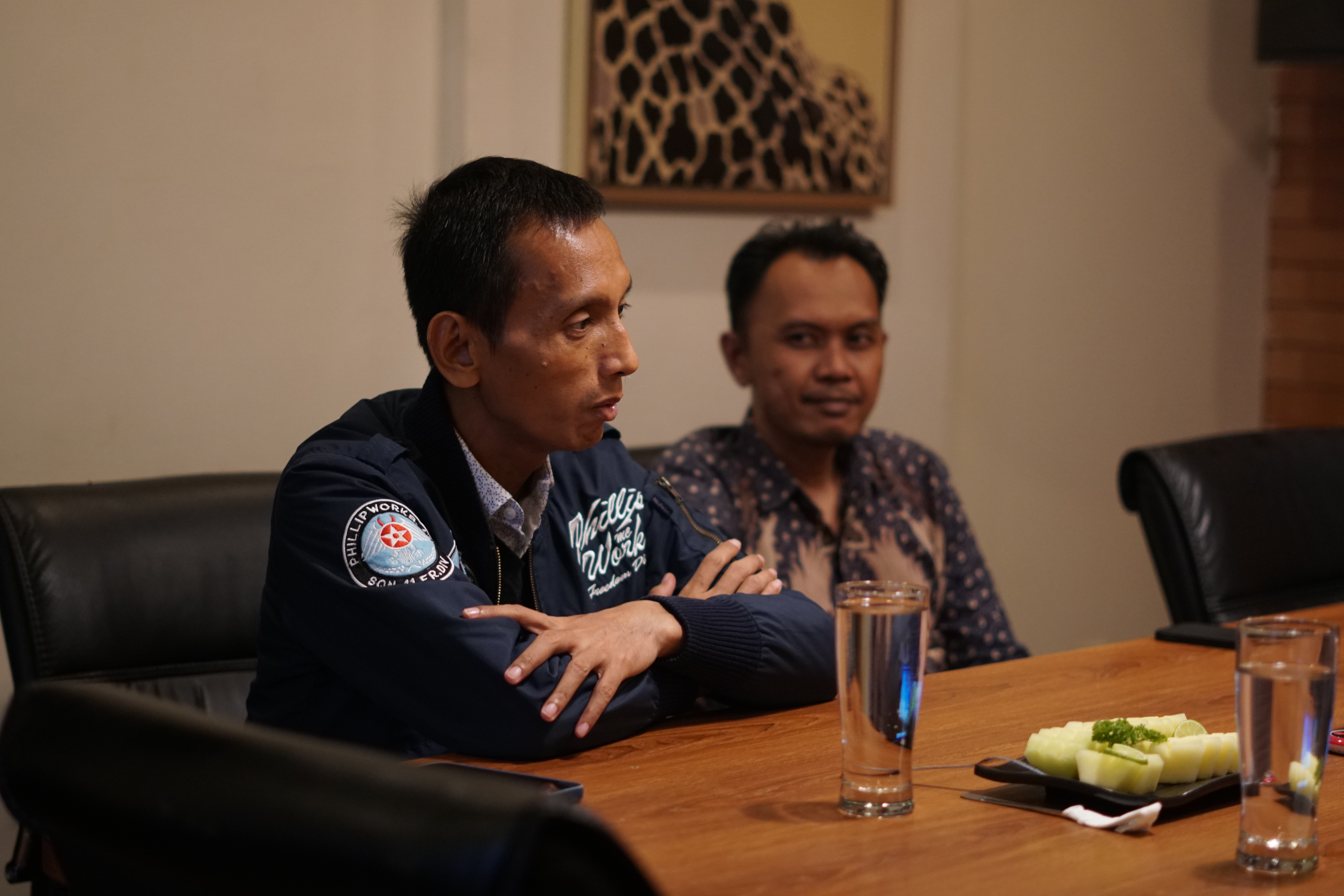
This wasn't simply a diplomatic courtesy tour or a series of expert briefings. Instead, it represented something more valuable: a genuine dialogue between representatives of two nations whose histories, while different in their specifics, share common themes of struggle, resilience, and the ongoing work of building independent, democratic societies.Indonesia's experience with decolonization, democratic transition, and regional diplomacy offers Ukraine practical lessons as it fights not just for territorial integrity but for its place in the international community.
Meanwhile, Ukraine's current resistance against Russian aggression resonates deeply with Indonesia's own historical memory of fighting for independence.The exchanges built understanding that extends beyond government-to-government relations. They created personal connections between journalists, academics, and experts who can continue these conversations long after the formal meetings end.
In an era when international dialogue often feels scripted or performative, these authentic exchanges between practitioners, people who actually cover wars, study security challenges, and work to strengthen democratic institutions, offer hope for more meaningful international cooperation.
